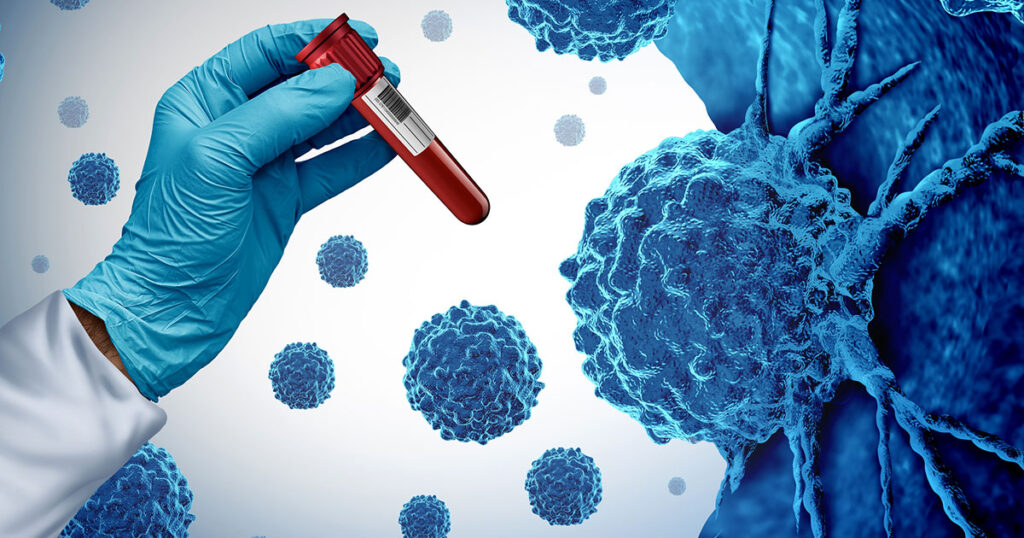1. Understanding Cancer and Its Treatment
Cancer is characterized by the uncontrolled growth and spread of abnormal cells in the body. Treatment typically involves a combination of surgery, chemotherapy, radiation therapy, and immunotherapy. While these treatments can be effective, they often come with side effects that can severely impact the patient’s blood health.
2. The Impact of Cancer Treatments on Blood Health
a. Chemotherapy:
Chemotherapy targets rapidly dividing cancer cells but can also affect healthy cells, including those in the bone marrow that produce blood cells. This can lead to conditions such as:
- Anemia: A decrease in red blood cells, causing fatigue and weakness.
- Thrombocytopenia: A reduction in platelets, increasing the risk of bleeding and bruising.
- Leukopenia: A decrease in white blood cells, weakening the immune system and increasing susceptibility to infections.
b. Radiation Therapy:
Radiation therapy can also damage bone marrow, leading to similar blood-related side effects as chemotherapy.
3. The Role of Blood Donations in Cancer Treatment
Blood donations provide essential support to cancer patients in several ways:
a. Red Blood Cell Transfusions:
Red blood cells are crucial for carrying oxygen throughout the body. Cancer patients undergoing treatment often suffer from anemia and may require red blood cell transfusions to restore their energy levels and overall well-being.
b. Platelet Transfusions:
Platelets are essential for blood clotting. Cancer treatments, particularly chemotherapy, can significantly reduce platelet counts, leading to an increased risk of bleeding. Platelet transfusions help prevent bleeding complications, allowing patients to continue their treatments safely.
c. Plasma Transfusions:
Plasma, the liquid component of blood, contains proteins and clotting factors. Plasma transfusions can help manage clotting disorders and support patients with liver function issues or those who have experienced significant blood loss.
d. White Blood Cell Support:
While white blood cells are not typically transfused, donated blood components such as granulocyte transfusions can support patients with severe infections or those undergoing bone marrow transplants.
4. The Process of Donating Blood for Cancer Patients
a. Whole Blood Donation:
Whole blood donations are separated into red blood cells, platelets, and plasma, each of which can be used to support cancer patients in different ways.
b. Platelet Donation (Apheresis):
During a platelet donation, a specific machine extracts platelets from the donor’s blood and returns the remaining components to the donor. This process allows for a higher yield of platelets from a single donation, which is particularly beneficial for cancer patients in need of platelet transfusions.
c. Plasma Donation:
Plasma donations involve extracting plasma from the donor’s blood and returning the red blood cells and platelets to the donor. This helps provide the necessary clotting factors for patients who require plasma transfusions.
5. The Impact of Blood Donations on Cancer Patients
Blood donations directly impact the lives of cancer patients by:
- Improving Quality of Life: Blood transfusions can alleviate symptoms of anemia and thrombocytopenia, allowing patients to maintain their strength and quality of life during treatment.
- Enabling Treatment Continuation: By managing side effects and complications, blood transfusions enable patients to continue their cancer treatments without interruption.
- Supporting Recovery: Post-treatment recovery often requires ongoing blood support, and donations play a critical role in helping patients regain their health.
6. How You Can Help
Donating blood is a simple yet profound way to support cancer patients. Here are a few steps you can take:
- Schedule Regular Donations: Regular blood and platelet donations ensure a steady supply for those in need.
- Organize Blood Drives: Encourage your community, workplace, or school to organize blood drives focused on supporting cancer patients.
- Spread Awareness: Educate others about the importance of blood donation and how it supports cancer treatment.
Conclusion
Blood donation is a lifeline for cancer patients, providing essential support that enables them to endure and overcome the challenges of treatment. By donating blood, you contribute to a critical aspect of cancer care, offering hope and strength to those in their fight against cancer. Your donation can make a significant difference, helping patients not only survive but thrive during and after their treatment journey.

